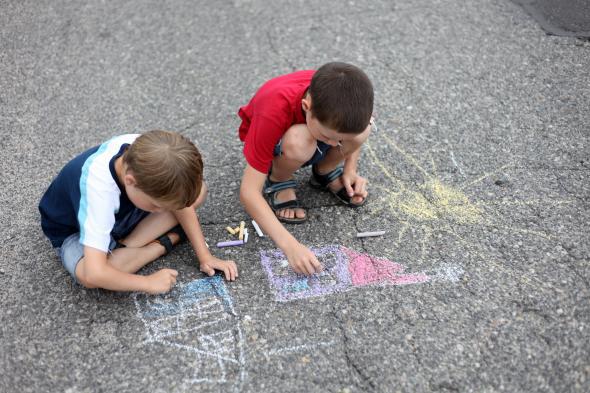During the summer of 2013, Natasha Felix decided to let her three sons—then ages 11, 9, and 5—play by themselves in a playground next to their apartment building in Chicago. A short while later, a preschool teacher saw the unchaperoned boys and decided to called the city’s Department of Children and Family Services hotline on their behalf. The state shared the teacher’s concern and gave Felix, a 27-year-old single mother, a child neglect citation. She was allowed to keep her children, but the charge resulted in the loss of her job and also prevented her from volunteering at her children’s school.
In news that is good for all parents, but especially so for Felix, the state of Illinois has decided to throw out the citation. A representative from the DCFS told the Chicago Tribune that the reversal of charges is the result of new leadership in their department and a commitment to reviewing the circumstances that got Felix accused of child neglect in the first place. Her charge was filed under the “extremely vague” (as her attorneys describe it) category of “inadequate supervision,” which Illinois applies to a child under the age of 14 whose parent “leaves the minor without supervision for an unreasonable amount of time, without regard for the mental or physical health or safety of the minor.“ That Felix, as she explained, sent her boys only next door, and that she was regularly checking on them through a window, apparently didn’t qualify as showing enough regard for their well-being.
In recent decades, our ideas about what can be considered inadequate supervision has expanded a great deal. Surveys show that in 1971, 80 percent of third-graders walked to school alone, whereas in 1990, only 9 percent did. Last year, Slate writers Jessica Grose and Hanna Rosin asked readers about what they were allowed to do as kids, and the results showed a steep decline in childhood freedom over the past half-century—despite the fact that the rates of abduction are dropping.
Over the years, rising neuroticism among parents found its way into our justice system. Among the more egregious examples: Last year a South Carolina mother was arrested for letting her 9-year-old daughter go to the park alone, and this year, a Washington, D.C. couple was picked up by the police twice for letting their 6- and 10-year-old children walk to school.
So the change of heart in Illinois is a relief. Combined with the recent amendment of No Child Left Behind that gives children the right to walk to and from school with their parents’ permission—or what Lenore Skenazy, founder of “Free Range Kids,” called the “first federal Free-Range Kids legislation”—there appears to be a growing resistance to overprotecting our kids among lawmakers.
In an age when many of us can’t afford childcare, when the school day is incompatible with the work day, and when we’ve got to figure out something for our children to do during school holidays, parents have enough to worry about. At least now we’ve got reason to hope that if we decide to send our kids to the playground by themselves this winter break, no charges will be pressed.
